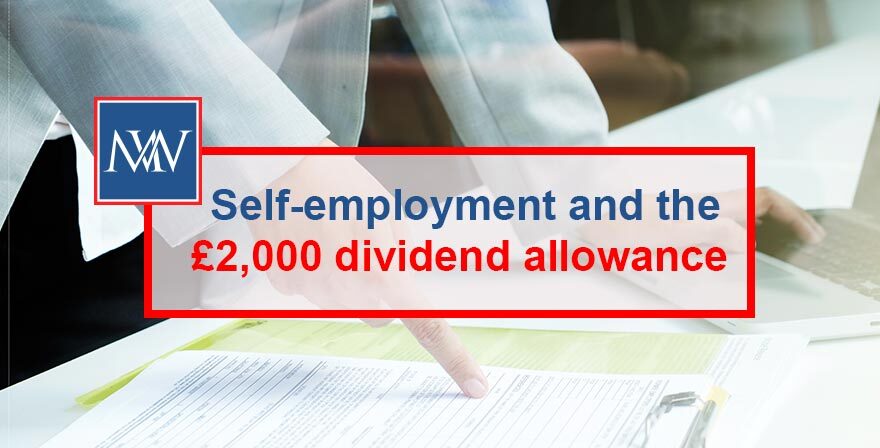
Self-employment and the £2,000 dividend allowance
All taxpayers, regardless of the rate at which they pay tax, are entitled to a tax-free allowance for dividends. For 2020/21 this is set at £2,000, so if you’re thinking of branching out to be self-employed or have made the switch last year, this is what you need to consider.
Nature of the allowance
If you’re self-employed and own your limited company, you can take money out of your company as a dividend, or you may receive a dividend payment if you own company shares.
Although termed the ‘dividend allowance’ it is in fact a zero rate band. Dividends covered by the allowance are taxed at a zero rate of tax, but count towards band earnings.
Where the personal allowance has not been otherwise utilised, dividends sheltered by the personal allowance are also received free of tax.
Dividends not covered by the allowance
Where dividends are not sheltered by either the dividend allowance or the personal allowance, they are taxable at the dividend rates of tax. Where the taxpayer has different sources of income, dividends are treated as the top slice of income. For 2020/21, dividend income is taxed at 7.5% to the extent that it falls within the basic rate band, at 32.5% to the extent that it falls within the higher rate band and at 38.1% to the extent that it falls within the additional rate band.
Using the 2020/21 allowance
The dividend allowance is lost if it is not used in the tax year. As the end of the 2020/21 tax year approaches, it is sensible to review your dividend policy and consider whether it desirable, and indeed possible, to pay further dividends before the 2020/21 tax year comes to an end on 5 April 2021.
Where an individual receives dividends both from their investments and their family or personal company, depending on their shareholdings, their dividend income may have fallen in 2020/21 as a result of the Covid-19 pandemic. This may provide the scope to pay higher dividends than normal from the family or personal company in order to utilise the allowance.
However, remember that dividends can only be paid from retained earnings.
Where profits are low for example if you have just started a business, or a loss has been made in 2020/21 as a result of the pandemic, this does not necessarily prohibit the payment of dividends – dividends can be paid as long as retained profits brought forward are sufficient to cover both any loss and any dividends paid out.
To comply with company law requirements, dividends must be paid in accordance with shareholdings. However, using an alphabet share structure (such that one shareholder has A class share, another has B class shares, and so on) overcomes this restriction and allows dividend payments to be tailored to utilise family members’ unused dividend (and indeed personal) allowances for 2020/21.
For more information , Book a Free Consultation
Need Accountancy Support?
For information on bespoke training, or if you have any other questions for Makesworth Accountant, please fill in your details below




















 148
148